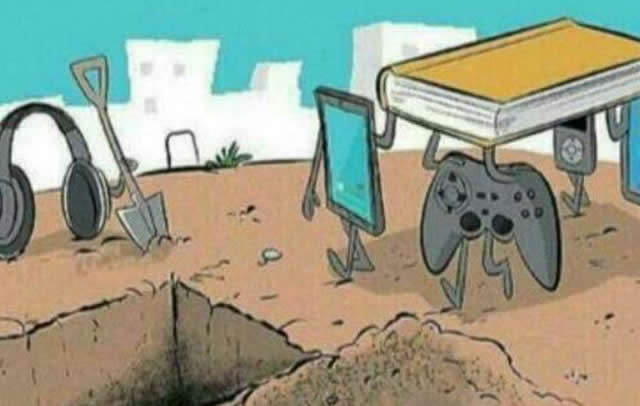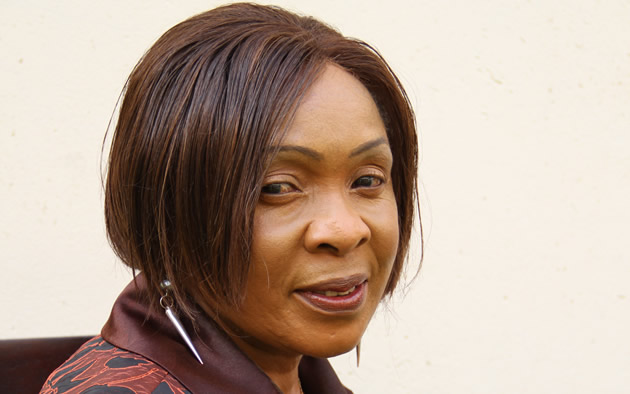Are students graduating without reading whole books?

Something ominous is happening at the country’s institutions of higher learning where students appear to be graduating without ever finishing a single book. Gone are the days when students used to rigorously go through set books from cover to cover as a way of gaining knowledge and not reading to pass exams.Some lecturers are livid because of the shocking ignorance levels shown through lack of understanding, appreciating and applying researched data to real life situations.
While the advent of the internet has transformed the way students undertake research, the downside of technology has been its effect in creating intellectual zombies who rarely go out of their way to understand complex theories.
Having been an undergraduate, I can safely testify that a majority of students are graduating without a deeper understanding or appreciation of any set books or any author. There is a disturbing obsession with past exam questions whose answers can simply be googled without one ever reading a whole book.
Instead of reading whole books, undergraduate students are using the index to find relevant points, reading articles and looking for information up from Wikipedia.
University of Zimbabwe lecturer, Tanaka Chidora believes the internet has degraded the desire to acquire knowledge.
“The reading culture is low but I am also sure that the levels are also low. By levels I mean that a class made up of hardworking students will be evaluated according to the standards of hardworking students. In the same vein, Spark notes students set the bar very low for lecturers,” Chidora said.
Chidora said students needed to be evaluated by immutable standards that are cast in stone. He said students were likely to get away with a lot of laziness in a scenario where examinations are the staple.
“This is the reason why most students find it hard to do a dissertation because from part-one they are not really researching,” said Chidora.
Indeed, at most institutions of higher learning, students seem to have mastered the art of reading through the index, introductions and conclusions, skim reading or approaching them via book reviews to construct an argument with a scholarly controversy.
But the phenomenon of not reading whole books is not peculiar to universities in Zimbabwe or Africa. History Professor at University of London, Orlando Figes believes the same trait has embedded itself at some European universities where students are encouraged to read to pass exams and carry on doing it as they get older.
In a recent article published in the UK’s Evening Standard, Professor Figes said students who fail to read whole books miss out.
“Good books swallowed whole transform our lives. We lose ourselves in them, emerging from them changed, richer intellectually, with new questions and ideas about the world. To read such a book in its entirety is to comprehend how its argument is constructed, to appreciate it as a work of literature and to be immersed in reading. This must surely help students to lengthen their attention span, deal with texts that are difficult and assimilate knowledge,” writes Prof Figes.
In order to remedy the situation spiralling out of control and becoming the norm, Prof Figes has launched a new course called Reading History, on which students will be expected to read five short history books, examine the influence they have had, and show in their exam that they have read them thoroughly.
He warned that over reliance on the Internet was misleading. A typical example is Wikipedia which he said had wrong information about the Russian Revolution — his area of expertise — where he found “an alarming number of mistakes, misapprehensions and misleading statements that would never have appeared in a textbook written by an expert in the field”.
Prof Figes challenged experts to improve the quality of information available online, which is why he launched a free website to help students studying the Russian Revolution and Soviet history.
He said: “What I hope, of course, is that it will steer students towards in-depth reading of books, not replace them.”
Local writer and university lecturer Memory Chirere, however, said a student needed to think through his or her argument and not necessarily read all set texts.
“University courses have certain minimum targets and you fail if you don’t meet them. If students of literature have not read the minimum text for a particular exam, their marker should see it and fail such students. The marker can see that the basic text has not been read even when it is evident that the student has read texts of criticism. The marking scheme spells out which attributes get which marks,” said Chirere.
Chirere said some students still read whole texts while others scheme through texts craftily enough to get the essentials. He said university questions test both an understanding of the text and an ability to analyse the text and relate it to life.
“I can safely say I have dealt with students in the two categories. University exams also test an ability to read what others have said about texts and students who do all these adequately tend to do well. Students who only do one of these activities tend to get low marks,” Chirere said.
While admitting that there is prevalent reading lethargy, some university students have blamed the practice on limited time given to finish books.
A former University of Zimbabwe student, Lonias Rozvi Majoni said the manner in which students are assessed was skewed.
“It is not true that students find it hard to finish a whole book. The reason why some students don’t read whole books is not because they struggle but because of how they are assessed. In my view there is over-emphasis on assessment rather than acquiring knowledge,” said Majoni.
He said the over-emphasis on assessment as opposed to genuine learning forces students to read a journal article or a chapter of a book because there isn’t enough time or thinking space before the next exam.
A typical course of English Literature at University of Zimbabwe has more than 10 set text books and in most cases such courses number to around four if it’s an Honours class.
The total texts a student is expected to read in a short time is on average more than 30 books and this puts a lot of pressure on a student who is expected to write end of semester exams.
Students prefer reading for an immediate seminar paper rather than a whole text as in some cases one may not attempt such a text in an exam.
Research has also shown that attention levels of students have drastically fallen due to technologies which make them multi-taskers.
In a paper published on EduCause Review on September 2015 on the use of technology titled “Paper or Tablet? Reading Recall and Comprehension”, Anne Niccoli argues that considering the pervasiveness of digital devices, the lack of sufficient guidance for educators to make informed decisions about instruction and learning is disconcerting.
“Despite the widespread adoption of tablets in schools, ranging from elementary through higher education, research about the effects of tablet use on student learning has obvious gaps,” writes Niccoli.
Niccoli’s research was backed by University of Texas scholar, Professor Andrew Dillion who stressed that students are spending so much time touching, pushing, linking, scrolling and jumping through text that when they sit down with a novel, their daily habits of jumping, clicking, linking are just ingrained in them.
Although the research was inconclusive on the effects of digital reading versus hard copy, there is overwhelming evidence that the Internet must always work as complementary instead of being the primary base of research.
As recommendations, the research suggested assigning longer readings that create a slight increase in cognitive load for digital readers and also having a longer time interval between assigned reading and assessment of students’ recall and comprehension.










Comments